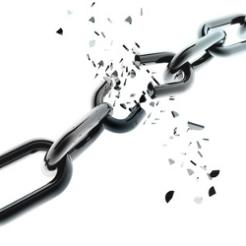Last year Paul Farmer resigned from a DWP review because of its impact on people with mental health problems. He believes independence is sacrosanct.
Many respected institutions are under attack at the moment: the police, the BBC, the NHS. They’re held in high public esteem but, as large institutions, they are also vulnerable to institutional failings.
When these events happen there’s an outcry, with the public demanding to know how it went wrong.
I don’t think the charity sector is yet under attack as an ‘institution’, but the warning signs are there. The ‘sock puppet’ debate, the row about capping gift aid, and widespread fears about funding cuts and a drop in donations are unsettling the sector.
At the same time, the crucial role our sector is playing in civil society is becoming more and more apparent. The recently-published Francis Report into the failings of the NHS calls for patient-centred leadership – he could look to the voluntary sector for examples of this, many of the highest quality.
Independence panel
So it was a good moment for a group of respected elder statesmen and women to publish the second report of the Panel on the Independence of the Voluntary Sector in January.
These people know what they’re talking about – between them they’ve accumulated many decades of experience in the sector. They too have spotted some early warning signs, and quite rightly are highlighting these for the rest of us.
In particular, the panel has highlighted concerns about the identity of the sector becoming blurred; a lack of good practice in commissioning at a local and national level; and threats to independence of voice.
It recognises particular challenges faced by smaller charities in a local setting, where there may only be one significant funder.
This is not a new problem. Many charities have found themselves, motivated entirely by their objectives and a desire to help beneficiaries, with an over-reliance on one funder. It is an issue trustees should always be alert to.
Looking forward, the panel sets challenges both for government and for us as a sector: be clearer about our identity; improve the regulatory framework; protect the independence of the sector; and promote better relationships between the state and charities.
The panel’s recommendations point us in the right direction in three ways.
First, it’s time for the sector to be ‘out and proud’ about our achievements, especially of the last couple of years, both individually and collectively.
I’m incredibly proud of Mind’s ability to have helped many more people last year, and for shifting public attitudes on the stigma around mental health, through the Time to Change Campaign, working in partnership with Rethink Mental Illness.
Secondly, we should continue to ‘speak truth to power’, without fear of retribution. The role of critical friend can be uncomfortable for all concerned, but it’s an important part of the democratic process.
Finally, the panel urges the use of commissioning and funding models that allow voluntary sector bodies to give their best. Evidence from the Work Programme suggests that this isn’t easy, but other commissioning and funding streams are showing signs of promise.
Core values
Just as the sector, 25 years ago, embraced statutory funding very cautiously, so trustees of charities today have to be clear about what kind of funding partners are appropriate, and what safeguards will reassure them that this is the right partnership. It’s important to remember that many of these relationships will be with private sector bodies, as well as public.
For most charities, it’s our values and our beneficiaries that drive our work. We are businesslike, and professional. We care about value for money because we know that our donors expect nothing less.
We’re at our best when we live our values and behave in a way that truly reflects them. In the challenging period ahead, we need to ensure that those values are used as our compass as we navigate our way through choppy waters.










